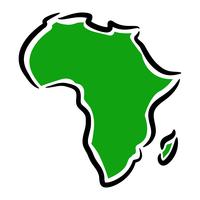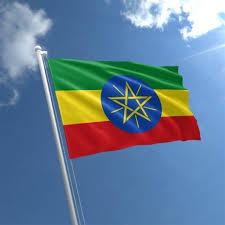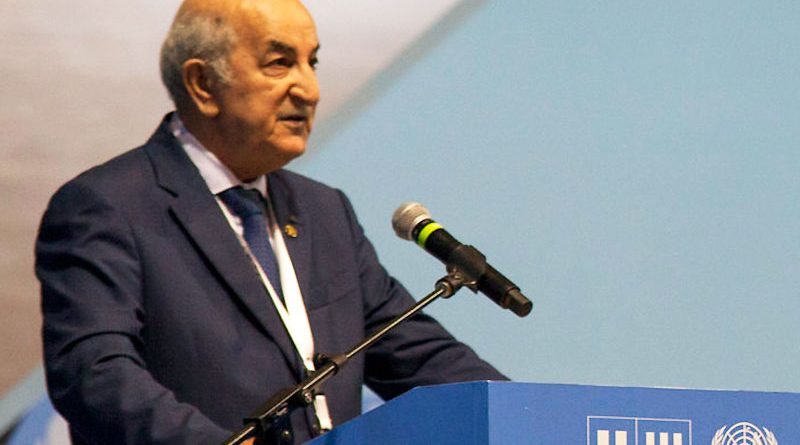Governance progress slowed across Africa for the first time in a decade, even before the coronavirus pandemic hit, with a commitment to democracy and civil rights faltering, a major report said Monday.
The Mo Ibrahim Index of African Governance, published every two years, gives each country's government a score according to criteria including anti-corruption measures, protection of civil liberties and caring for the environment.
More than 60 per cent of Africans live in countries that made progress in good governance over the period 2010 to 2019, this year's report said.
But progress has slowed in the last five years and this year, for the first time in the last 10 years, the combined score for all the countries fell year-on-year, the Mo Ibrahim Foundation added.
The foundation, set up in 2006 to focus on the need for good political leadership and public governance in Africa, cited growing curbs on people's ability to exercise their democratic rights and take part in civil society.
The results use data from last year and do not therefore include the impact of coronavirus.
Since the pandemic began, some elections have been postponed while "the continent had been going through a deterioration of civil society space, participation and rights long before Covid-19," the report said.
There is "an increasingly precarious environment for human rights and civic participation" as well as a "deteriorating security situation," it added.
- 'Worrying declines' -
Also this year, the incumbent presidents of Guinea and Ivory Coast succeeded in pushing through constitutional changes allowing them to stand for a third term, sparking deadly unrest while adding their names to a long list of leaders with similar playbooks.
Post-election clashes have claimed scores of lives in Ivory Coast and at least 21 in Guinea, where several opposition figures are in police custody over the violence.
In Nigeria, largely peaceful youth-led protests against a hated police unit spilled over into looting and violence.
The UN last week called for urgent measures to protect civilians in Mozambique's northeastern Cabo Delgado province, where jihadists are wreaking havoc, warning that the population was "desperate".
Since 2015, countries' scores for security and rule of law and participation have slowly worsened while scores for rights and inclusion have fallen more sharply, the report said.
Only one country, Ethiopia, has made progress across all areas measured over a decade, the report said -- but the continent's second most populous country is now embroiled in a military conflict pitting the federal government against the dissident northern region of Tigray.
Across Africa, progress in some areas such as economic opportunity has come alongside "worrying declines in participation, rights, inclusion, rule of law and security," the report said.
- Covid inequality -
Coronavirus threatens gains in economic opportunity, "worsening an already alarming situation," it added.
For the first time, the report looked at new areas such as digital rights and inclusiveness as well as environmental sustainability.
South Africa, ranked sixth, has declined over the decade, falling more steeply since 2015, and is on a "concerning trajectory," the report found.
The country's former president, Jacob Zuma, was forced out by the ruling African National Congress (ANC) over a slew of corruption scandals.
ANC secretary-general Ace Magashule was charged last Friday with multiple counts of fraud, corruption and money laundering allegedly committed under Zuma.
Source: Africa News
Battles are raging in Ethiopia's northern Tigray state.
The Ethiopian government has called it a law enforcement operation against a rebellious region.
The Tigray regional leadership has called the federal army operations ...an invasion.
The region's leader has urged his people to defend themselves against the national army.
Debretsion Gebremicheal has since been removed by the federal parliament.
The clashes are the result of months of political tensions pitting the federal government headed by PM Abiy Ahmed against the Tigray People's Liberation Front (TPLF), the governing party in Tigray state.
The appointment of Abiy Ahmed, an ethnic Oromo as Prime Minister of Ethiopia in 2018 upset the political status quo in Addis Ababa.
The TPLF was the dominant party in the country's ruling coalition known as the EPRDF.
But Abiy's subsequent reform campaign blamed the Tigrays for past rights abuses and corruption.
After their fall from grace, TPLF officials retrurned to Mekelle, the regional capital of Tigray, where they faced accusations of undermining Abiy's rule and formenting ethnic conflict.
When Ethiopia postponed an election due to the pandemic, tensions rose further with the Tigrays holding their own vote.
Addis Ababa responded with fiscal sanctions, cutting off financial assistance to the region of about six million people.
Abiy ordered army operations after TPLF forces attacked a base of the national army, killing several soldiers.
In ordering military operations on November 4, Abiy hoped for a quick victory. But with the Tigrayans in possession of a sophisticated arsenal and a massive militia, analysts say the conflict might drag for some time, even spread to neighboring countries.
Federal forces have also enlisted the support of militias from the neighboring Amhara state to help their advance into Tigray.
Ethiopia has used artillery and jets to strike enemy targets. Tigray too has launched rocket attacks on Gondar and across the border in Eritrea.
Addis Ababa so far has resisted calls for dialogue.
Source: Africa News
ALGERIA will reimpose restrictions to combat the spread of COVID-19 from November 17, including closing gyms, cultural centres, leisure venues and used car markets, and limiting opening hours for some businesses, the prime minister’s office said on Sunday.
The new measures are aimed at coping with “the worrying phase that the country is experiencing in terms of the evolution of the epidemiological situation,” it said in a statement.
Under the restrictions, businesses such as cafes, restaurants, hair salons and toy shops will be ordered to close at 3:00 p.m.
The North African country had started easing restrictions in June after a downward trend in cases, paving the way for the reopening of most businesses.
But the situation has worsened again in recent weeks, causing a surge in the number of patients.
Among those is President Abdelmadjid Tebboune, 75, who was flown to a German hospital after testing positive for COVID-19. The presidency said on Sunday he had finished treatment for the disease but would undergo follow-up checks.
The government has announced a total of 66,679 cases of COVID-19 and 2,154 deaths from the disease.
Source - Thomson Reuters Foundation.
JOHNSON & JOHNSON has launched a new large-scale late-stage trial to test a two-dose regimen of its experimental COVID-19 vaccine and evaluate potential incremental benefits for the duration of protection with a second dose.
The U.S. drugmaker plans to enrol up to 30,000 participants for the study and run it in parallel with a one-dose trial with as many as 60,000 volunteers that began in September.
The UK arm of the study is aiming to recruit 6,000 participants and the rest will join from other countries with a high incidence of COVID-19 cases such as the United States, Belgium, Colombia, France, Germany, the Philippines, South Africa and Spain, it said.
They will be given the first dose of either a placebo or the experimental shot, currently called Ad26COV2, followed by a second dose or placebo 57 days later, said Saul Faust, a professor of paediatric immunology and infectious diseases who is co-leading the trial at University Hospital Southampton.
The trial follows positive interim results from the company’s ongoing early to a mid-stage clinical study that showed a single dose of its vaccine candidate induced a robust immune response and was generally well-tolerated.
“The study will assess the efficacy of the investigational vaccine after both the first and second dose to evaluate protection against the virus and potential incremental benefits for the duration of protection with a second dose,” J&J said in a statement.
Rival drugmakers Pfizer and BioNtech said last week that their potential COVID-19 shot showed more than 90% efficacy in interim data from a late-stage trial, boosting hopes that vaccines against the pandemic disease may be ready for use soon.
While the Pfizer-BioNtech vaccine uses a new technology known as messenger RNA, J&J’s uses a cold virus to deliver genetic material from the coronavirus into the body to prompt an immune response.
The platform, called AdVac, is also used in an Ebola vaccine that was approved earlier this year.
“It’s really important that we pursue trials of many different vaccines from many different manufacturers and be able then to ensure the supply both to the UK and global population,” Faust told reporters at a briefing.
Recruitment into the study will complete in March 2021 and the trial will last for 12 months.
Source – Thomson Reuters Foundation.




